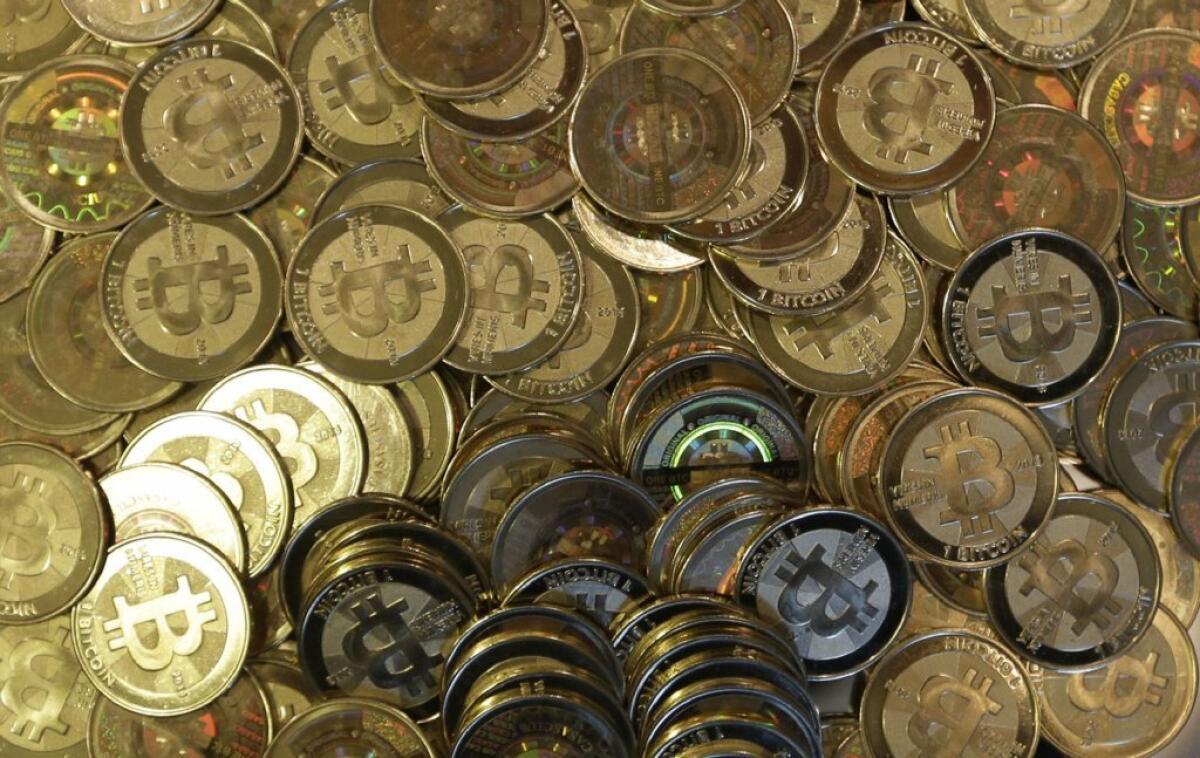The banking industry starts closing in on bitcoins

- Share via
No surprise here, but the signs are rife that the banking industry is busily cooking up alternatives to bitcoin--or just as likely, preparing to absorb the bitcoin model into their existing franchise.
The most recent indication comes from JPMorgan Chase, which recently filed a patent application for a computerized payment and financial transfer system it claims could compete at lower cost with credit and debit cards.
Hawk-eyed bitcoin mavens see the application as an effort to replicate the virtues of bitcoins without, perhaps, their drawbacks. The Financial Times describes the proposal as a way for people to make “anonymous, electronic payments over the Internet, without having to reveal their name or account numbers or pay a fee.” Over at the website Let’s Talk Bitcoin, Brian Cohen sees the plan as a centralized network competing with bitcoin, which is decentralized.
The JPMorgan application points to several undeniable facts. One is that financial players are always on the lookout for cheaper and faster payment processing systems. Bitcoin thus far has been cheaper than most bank-based systems, but for many businesses its disadvantages include the lack of centralized oversight that its fans think is its chief virtue.
JPMorgan’s application suggests that the banks are thinking about offering services that split the cost difference--higher fees than bitcoin agents, but lower than existing bank processing--while adding protective elements like an audit trail and legal recourse if something goes wrong. (If your bitcoin transaction goes kerblooey, whom do you sue? Answer: no one.)
Another fact is that bitcoins already are not alone in the virtual currency/online payment world. Among the competitors are litecoins, which are like bitcoins but cheaper, so that “mining” them (increasing the global store of value) doesn’t require the industrial-scale computing power that bitcoins do, but can be mined with “consumer grade” computing hardware to perform the mathematical computations involved in mining.
As litecoins become more broadly accepted, however, it’s a good bet that they’ll get more expensive per coin, leaving room for the appearance of yet another rival virtual currency. In fact, there’s no real obstacle to the creation of a slew of non-bitcoin virtual currencies.
Other services have already appeared allowing fast, cheap international transfers without any specialized virtual currency at all. One is Ripple Labs, which says it can send payments to anyone anywhere in the world in seconds, in any currency. Such services finesse the question that makes bitcoins so controversial -- whether bitcoins are a currency, commodity or cult.
Most users of such systems aren’t going to be interested in the answer --hey’re just going to want to send money from one place to another. Don’t expect the existing money-transfer industry -- the banks, to you --o let this happen without getting a piece of the action.
More to Read
Inside the business of entertainment
The Wide Shot brings you news, analysis and insights on everything from streaming wars to production — and what it all means for the future.
You may occasionally receive promotional content from the Los Angeles Times.










